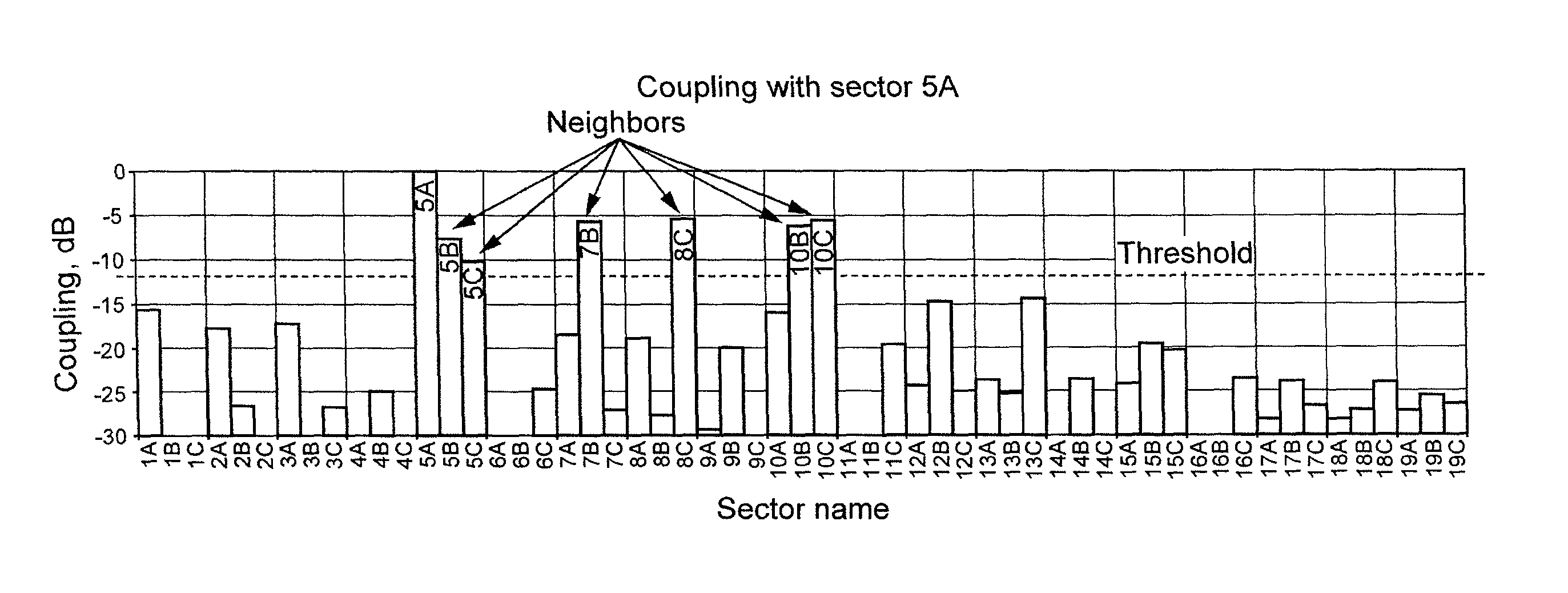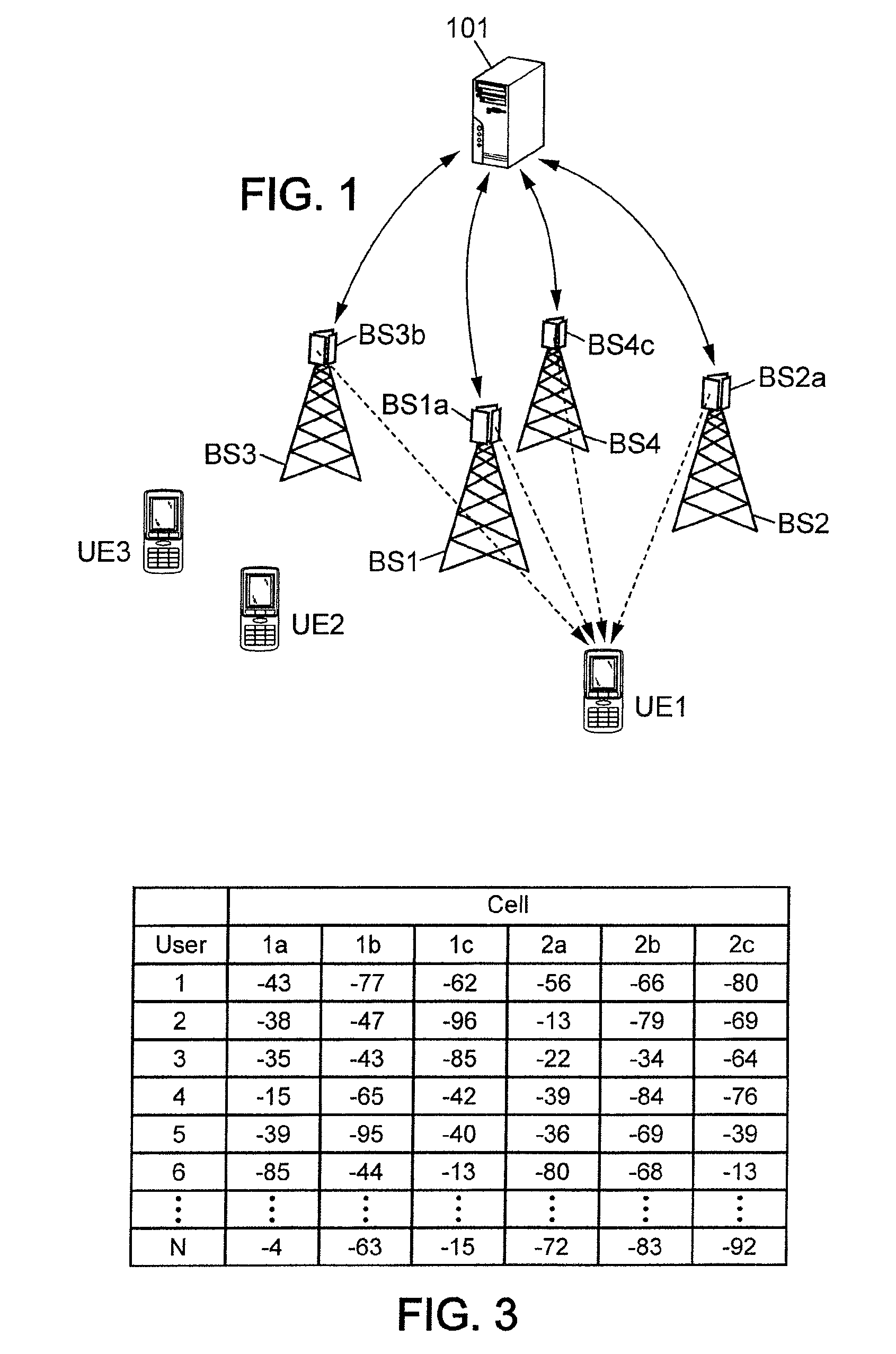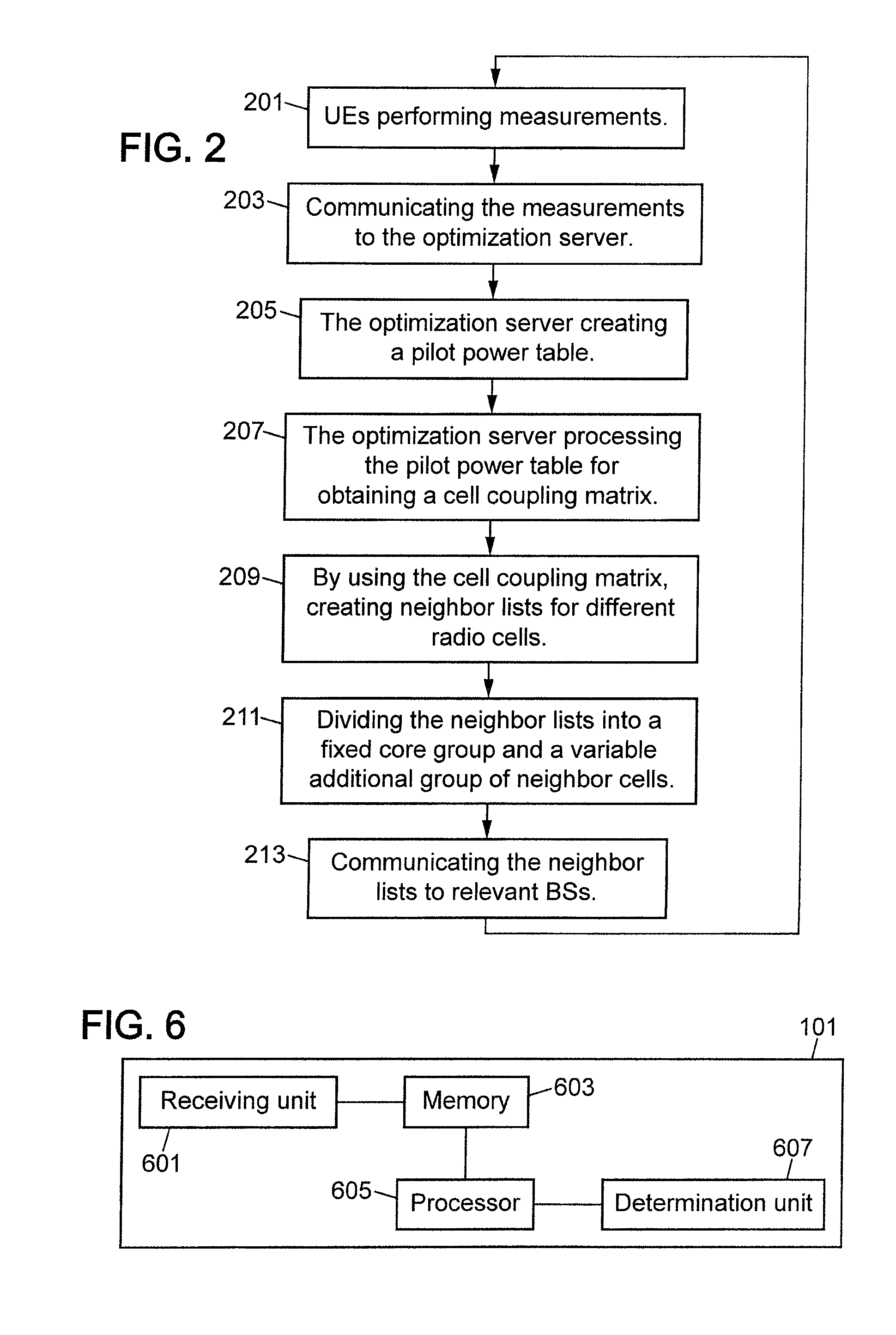Optimizing neighbor lists
a neighbor list and neighbor list technology, applied in the field of optimizing neighbor lists, can solve the problems of not being able to scan all possible channels or id codes, not being able to achieve the effect of superior performance, and being unable to achieve automatic optimization
- Summary
- Abstract
- Description
- Claims
- Application Information
AI Technical Summary
Benefits of technology
Problems solved by technology
Method used
Image
Examples
Embodiment Construction
[0028]One embodiment of the invention will next be described in the context of a cellular radio communication network, such as a UMTS. It is to be noted that the following exemplary embodiment is only illustrative and many alterations in the described embodiment are possible.
[0029]In FIG. 1 there are shown three UEs (UE1, UE2 and UE3) operating in a cellular communication network. There are also shown four BSs (BS1, BS2, BS3 and BS4), also known as node Bs in UMTS, serving the UEs by providing necessary radio channels. An optimization server 101 is also provided for generating neighbor lists in accordance with the invention as will be explained later in more detail. For simplicity only these units are shown in FIG. 1. Other elements that are not relevant for understanding the teachings of the present invention are not shown in FIG. 1, but a skilled person readily understands that a communication network also comprises other elements.
[0030]In FIG. 1, each BS site has three sector ant...
PUM
 Login to View More
Login to View More Abstract
Description
Claims
Application Information
 Login to View More
Login to View More - R&D
- Intellectual Property
- Life Sciences
- Materials
- Tech Scout
- Unparalleled Data Quality
- Higher Quality Content
- 60% Fewer Hallucinations
Browse by: Latest US Patents, China's latest patents, Technical Efficacy Thesaurus, Application Domain, Technology Topic, Popular Technical Reports.
© 2025 PatSnap. All rights reserved.Legal|Privacy policy|Modern Slavery Act Transparency Statement|Sitemap|About US| Contact US: help@patsnap.com



